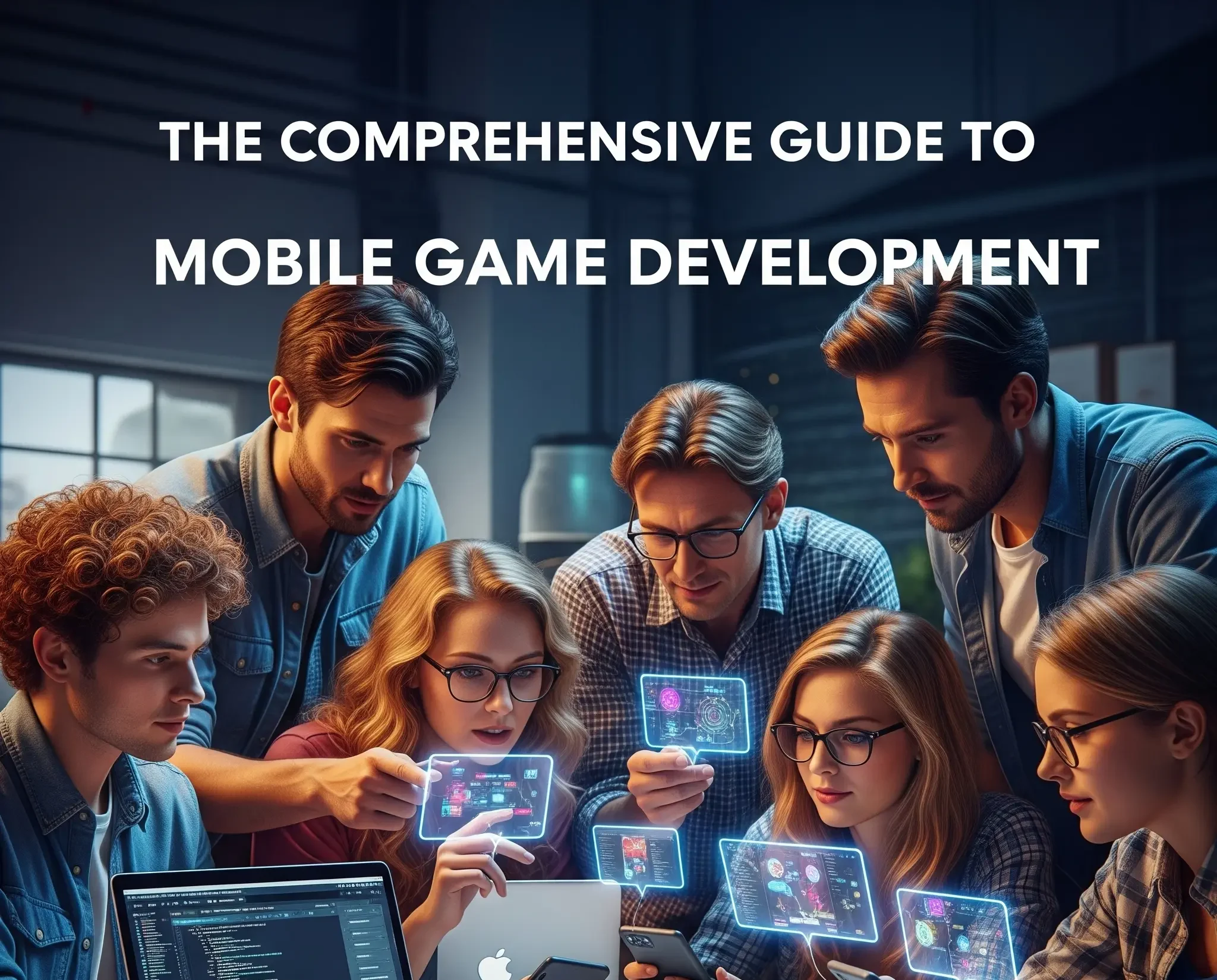Mobile gaming is no longer niche—it’s a global phenomenon. By 2024, the mobile gaming market alone surpassed $282 billion, with projections reaching $363 billion by 2027. In this guide, we’ll walk you through every phase of mobile game development, sharing insights, best practices, and real-world examples—while highlighting how Xogo Studios can help bring your game to life.
1. Why Mobile Game Development Matters Today
- Market Scale: Over half the global video game revenue now comes from mobile. In the U.S. alone, mobile games accounted for nearly 50% of the gaming market.
- Global Accessibility: Smartphones are ubiquitous, offering a huge audience—from casual puzzle players to strategy enthusiasts.
- High ROI Potential: Simple genres like hyper-casual and puzzle games can be developed quickly and became hit titles generating millions in revenue.
2. Stages of Mobile Game Development 🛠️
Stage 1: Pre‑Production
- Concept & Market Research: Define your idea, audience, and genre. Analyze trending titles and keyword opportunities early on.
- Game Design Document (GDD): A thorough blueprint detailing story, core mechanics, art direction, monetization, and platform choices.
- Prototyping: Develop rapid prototypes to test gameplay loops, controls, and look & feel before committing resources.
- Budget & Roadmap: Estimate costs and timelines—structure milestones for MVP launch, beta testing, and live-ops.
Stage 2: Production
- Asset Creation: Build visuals (2D/3D), sound effects, UI/UX, animations, and branding assets.
- Coding & Integration: Bring everything to life. Choose the right engine—Unity, Unreal, Godot, Buildbox, etc.—based on your game’s scope.
- Iteration Strategy: Regular playtesting, refining game mechanics, and polishing based on feedback.
Stage 3: Testing & Optimization
- Quality Assurance: Detect bugs, crashes, and performance issues—especially crucial due to varied device specifications.
- Performance Tuning: Optimize battery use, memory, frame rate, and loading times.
- Beta & Soft Launch: Test across different geographies for gameplay balance and monetization tweaks.
Stage 4: Launch
- App Store Optimization (ASO): Optimize icon, title, screenshots, keywords, and description to improve visibility.
- Marketing & User Acquisition: Use ads, influencers, PR, and user acquisition campaigns pre- and post-launch.
- Live‑Ops: Plan events, daily rewards, seasonal content, and battle passes to retain players early on.
Stage 5: Post‑Launch & Live‑Ops
- Continuous Updates: Release frequent fresh content—new levels, characters, and features.
- Data‑Driven Improvements: Use analytics to refine gameplay and keep users engaged.
- Community Building: Respond to feedback, cultivate social channels, and launch in-game events to keep your player base growing.
3. Selecting the Right Mobile Game Engine
| Engine | Strengths | Best Use Cases |
|---|---|---|
| Unity | Cross-platform, large asset store, live-ops tools | Ideal for 2D/3D, indie to AAA games |
| Unreal | High-end 3D, visual scripting, photorealistic visuals | AAA-quality 3D games |
| Godot | Lightweight, MIT-licensed, flexible | 2D/3D indie titles, small teams |
| Buildbox | No-code, drag-and-drop | Quick prototyping, hyper-casual games |
| Solar2D | Free, Lua-based, fast 2D dev | Casual mobile games, scriptable |
Choosing an engine depends on your game’s genre, team size, budget, and timeline. Xogo Studios has expertise across Unity, Unreal, Godot, and no‑code tools—helping you pick the right fit.
4. Common Pitfalls & Best Practices
- Underestimating Scope: Feature creep can derail timelines. Stick to your MVP for launch.
- Ignoring Device Diversity: Test on low- and mid-tier devices for real-world performance.
- Weak Onboarding: Intuitive tutorials and UX are key for retention.
- Missing Live-ops Strategy: Without fresh content, player interest drops fast.
- Neglecting Analytics: Data-driven updates keep gameplay engaging and profitable.
Best-in-class mobile games stand out by storytelling, addictive gameplay loops, polished interfaces, and AI-enhanced content.
5. How Xogo Studios Elevates Your Project
At Xogo Studios, we offer:
- ✅ End-to-end services: Concept & GDD, prototyping, full-stack development, UI/UX, QA, launch & live-ops.
- 🎮 Cross‑engine expertise: Unity, Unreal, Godot, Buildbox, Solar2D.
- 📊 Data-powered insights: Real-time analytics, A/B testing, and user segmentation.
- 💡 Live-Ops mastery: Daily reward systems, seasonal events, push notifications, and retention loops.
- 🤝 Marketing & ASO support: Pre-launch strategies, app store optimization, and cross‑platform user acquisition campaigns.
Whether you’re launching a casual puzzle game, immersive RPG, or competitive multiplayer title, Xogo Studios ensures your mobile game development journey is seamless, efficient, and successful.
6. Trends Shaping the Future of Mobile Games
- AI-assisted design & content generation: Automating level design and dynamic storylines.
- Augmented Reality (AR) & Immersive Tech: AR features are gaining traction across mobile titles.
- Live service ecosystems: Games as service, with seasonal updates and community-driven engagement.
- Cross-platform social integration: Multiplayer modes, clan systems, and social features are essential.
🛠️ Conclusion
Mobile game development offers boundless opportunity—but success requires careful planning, solid production workflows, iterative testing, and consistent live-ops. With revenue soaring and active audiences in the billions, the time to build a standout mobile game is now.
Ready to Start Developing Your Mobile Game?
Partner with Xogo Studios for:
- 🎯 Strategic planning & concept execution
- 🚀 Rapid prototyping and full-cycle development
- 🧠 Engine selection & technical expertise across Unity, Unreal, and others
- 📈 Data-powered live-ops and engagement campaigns
Let’s make your game vision a reality.
👉 Contact us today for a free consultation. Share your idea and discover how Xogo Studios can elevate your project from concept to download!



